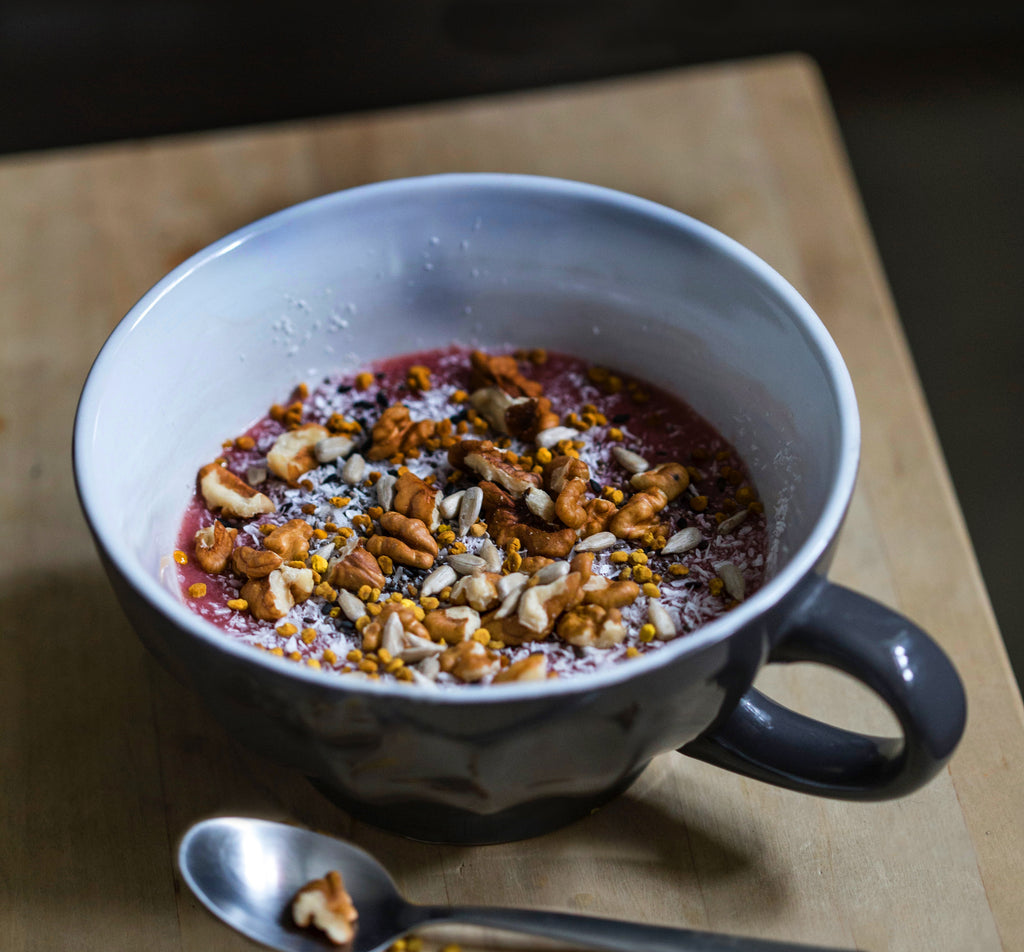6 minute read.
Introduction:
The topic of winter wellness has always been important but working out how best to stay healthy has risen to the top of our agendas this year due to the coronavirus pandemic.
This issue was highlighted by my friend and British Medical Journal editor Dr Fiona Godlee in an editorial entitled, Covid 19: what we eat matters all the more now.1 Dr Godlee started by looking at the growing body of evidence regarding the role of diet in improving physical and mental wellbeing published before the pandemic. For example, obesity has been clearly linked to heart disease, diabetes, depression and no less than thirteen different types of cancer.2 The editorial highlighted that obesity is now emerging as an important risk factor for COVID-19 and concluded that improving our diets should be an urgent priority both for our personal health and wellbeing and to reduce the burden on health services.
Dr Godlee wrote: “While acknowledging the many complexities and uncertainties, a consensus is emerging: we need diets richer in whole grains, fruit, vegetables, and legumes, with less red meat, refined carbohydrates, and highly processed foods.”
Are there clear dietary recommendations for the coronavirus pandemic?
It would of course be helpful if there were clear dietary guidelines for us all to follow. A helpful review has been published which summarised nutritional guidelines compiled during the COVID-19 pandemic by 13 different governments and health organisations. 3
The review recommends vegetables, fruits and whole grain products with moderate consumption of mainly unsaturated fats, avoiding sugar and salt plus good hydration. In addition, adequate dietary intake of zinc and Vitamins C, D, and A are also recommended. We don’t make enough Vitamin D from sunlight on our skin in the UK between October and March, so Public Health England suggests we consider taking a Vitamin D supplement during the autumn and winter to bolster dietary sources.4
The aims of the recommendations are twofold: to encourage a diet containing key nutrients to support the immune system, plus reduce the risk/help control conditions such as hypertension, diabetes and obesity which are considered to be risk factors for COVID-19 complications.5
What about the Mediterranean diet?
The Mediterranean diet consists of vegetables, fruits, legumes, nuts, beans, cereals, grains, fish, and unsaturated fats such as olive oil, with limited meat and dairy produce. The diet has been linked to reducing the risk of heart disease and diabetes.6-7
A recently published editorial8 in the journal Metabolism looked at the Mediterranean diet as a nutritional approach to COVID-19. The authors noted that obesity and its associated chronic diseases were associated with poorer COVID-19 outcomes. Common underlying pathological features included chronic inflammation and oxidative stress which were made worse by an unhealthy diet. The authors wrote: “It would be of paramount importance to adopt healthy eating habits during the COVID-19 outbreak and to maintain balanced dietary practices, as outlined in the recent nutritional advice published by the World Health Organization9 as well as professional associations, societies, and governments.”3
The Mediterranean diet is rich in naturally occurring plant compounds called polyphenols. Polyphenols particularly flavonoids and their metabolites, are associated with a wide range of health promoting effects including antioxidant, anti-inflammatory, and anti-thrombotic properties which may have a particularly important role in fighting COVID-19 disease and promoting metabolic and cardiovascular health.8
What about haskap berries?
Haskap berries contain high levels of anthocyanins which are a subgroup of flavonoids. Haskap berries have been found to have important antioxidant, anti-inflammatory and cardioprotective properties.10 Haskaps contain particularly high levels of antioxidants because they have a double purple-blue skin, where many of the antioxidants are found.11 Canadian researchers have demonstrated that in laboratory experiments haskap berry extracts significantly inhibited the expression of several major chemical messengers involved in the development of chronic inflammation.12
The winter wellness diet
A clear consensus is emerging to suggest that our winter wellness diets should include vegetables, fruits and whole grain products with the Mediterranean diet being an excellent example. It is not always easy to get hold of good fresh berries during the winter. Just one teaspoon of our Haskapa berry freeze dried powder is equivalent to a handful of fresh berries and will give you your daily berry boost.
- Godlee, F. Covid-19: What we eat matters all the more now. BMJ. 2020 July. 370:m2840.
- https://www.cdc.gov/media/releases/2017/p1003-vs-cancer-obesity.html
- de Faria Coelho-Ravagnani, Christianne, et al. "Dietary Recommendations During the COVID-19 Pandemic." Nutrition Reviews,
- https://www.gov.uk/government/publications/vitamin-d-supplementation-during-winter-phe-and-nice-statement/statement-from-phe-and-nice-on-vitamin-d-supplementation-during-winter
- Wang B, Li R, Lu Z, et al. Does comorbidity increase the risk of patients with COVID-19: evidence from meta-analysis. Aging (Albany NY). 2020;12:6049–6057. doi:10.18632/aging.103000
- Estruch R, Ros E, Salas-Salvadó J, Covas MI, Corella D, Arós F, et al. Primary prevention of cardiovascular disease with a Mediterranean diet supplemented with extra-virgin olive oil or nuts. N Engl J Med. 2018;378(25):e34. https://doi.org/10. 1056/NEJMoa1800389.
- Salas-Salvadó J, Bulló M, Estruch R, Ros E, Covas MI, Ibarrola-Jurado N, et al. Preven- tion of diabetes with Mediterranean diets: a subgroup analysis of a randomized trial [published correction appears in Ann Intern Med. 2018 Aug 21;169(4):271-272]. Ann Intern Med. 2014;160(1):1–10. https://doi.org/10.7326/M13-1725.
- https://doi.org/10.1016/j.metabol.2020.154407
- http://www.emro.who.int/nutrition/nutrition-infocus/nutrition-advice-for-adults-during-the-covid-19-outbreak.html
- Rupasinghe HPV, Arumuggam N, Amararathna M, De Silva ABKH. (2018) The potential health benefits of haskap (Lonicera caerulea L.): Role of cyanidin-3-O-glucoside. Journal of Functional Foods. 44. 24-39. 10.1016/j.jff.2018.02.023.
- Rupasinghe HPV, Yu LJ, Bhullar KS and Bors B. (2012). Haskap (Lonicera caerulea): A new berry crop with high antioxidant capacity. Can. J. Plant Sci., 92: 1311–1317
- Rupasinghe, H.P.V., M.A. Boehm, S. Sekhon-Loodu, I. Parmar, B. Bors, A.R. Jamieson. 2015. Anti-inflammatory activity of haskap (Lonicera caerulea L.) cultivars is dependent on their polyphenol content. Biomolecules. 5:1079-1098.

